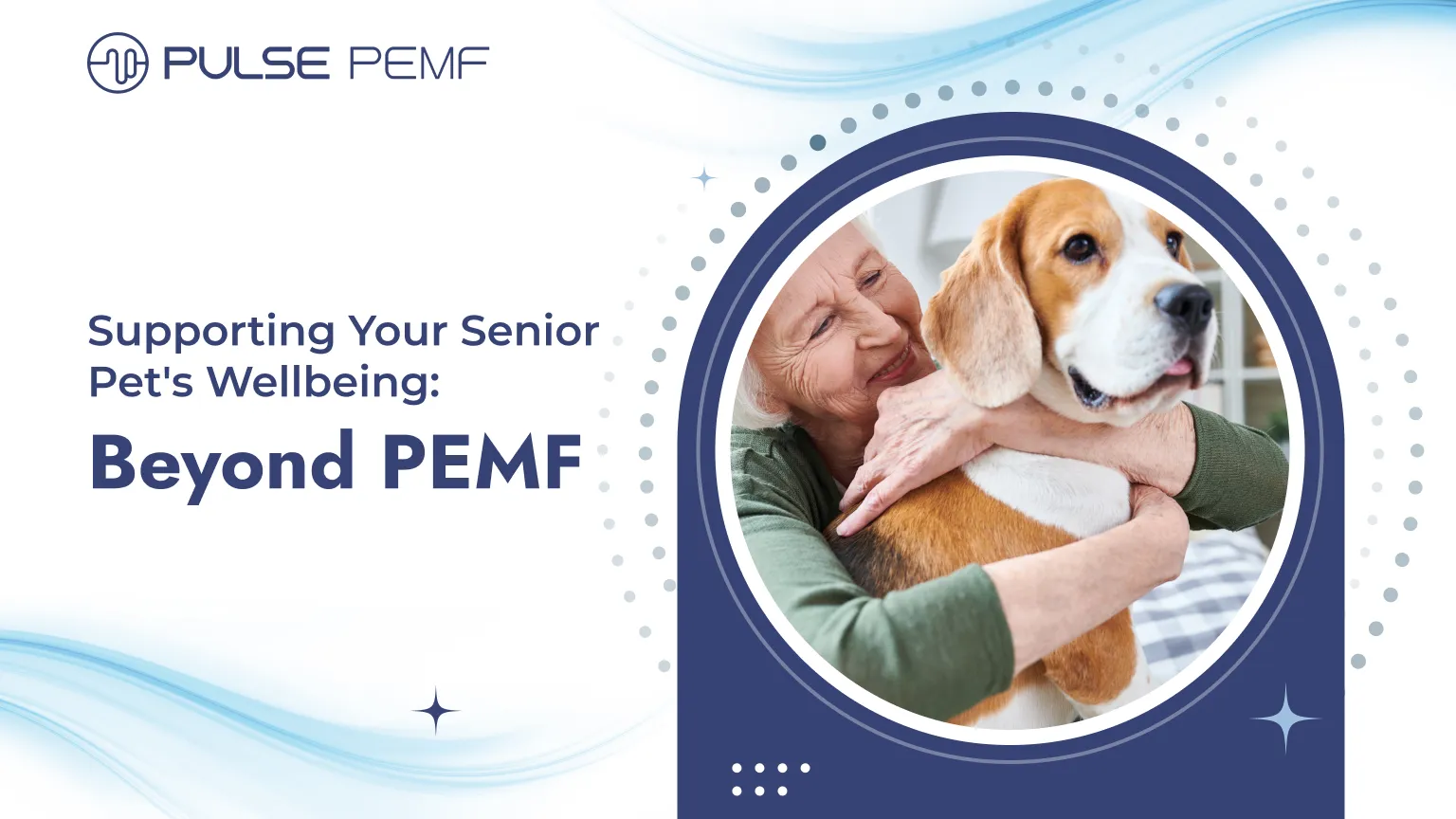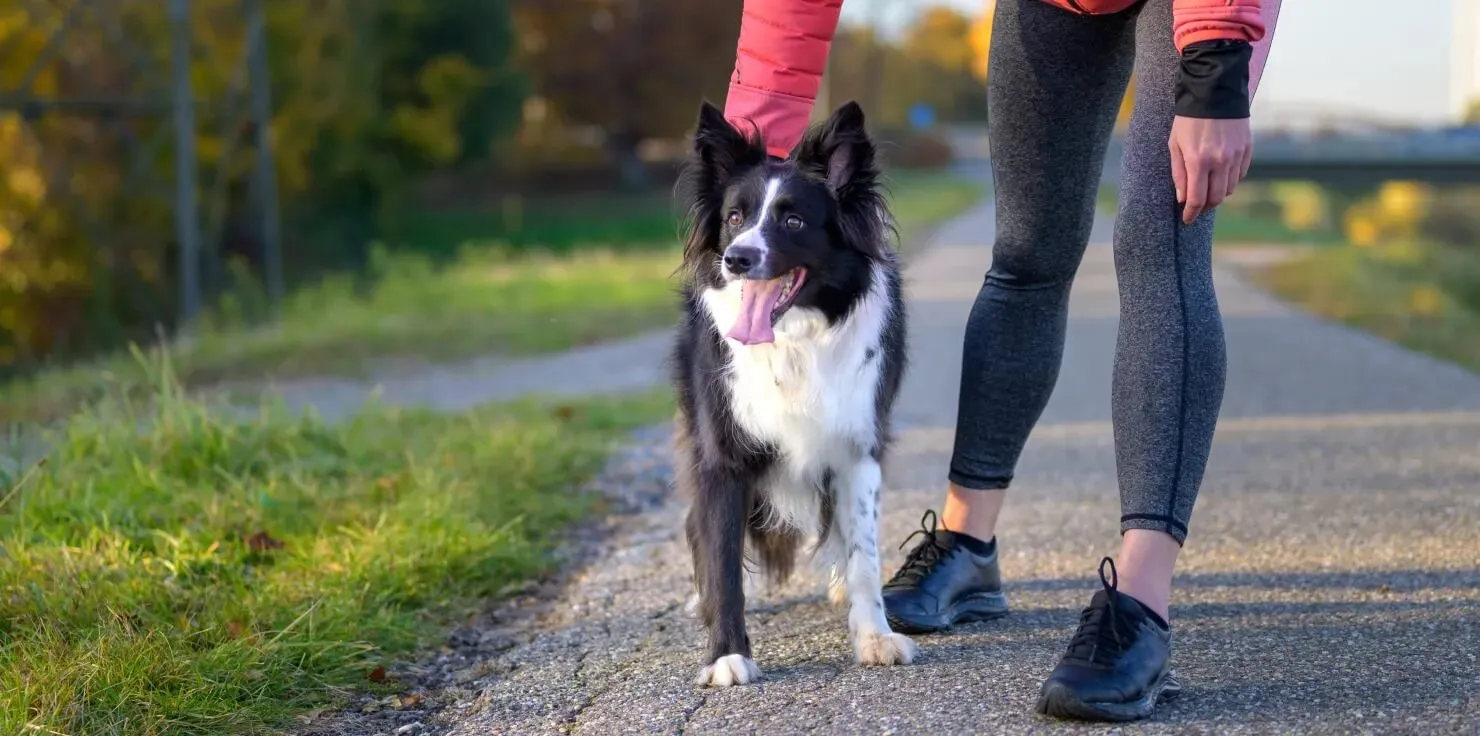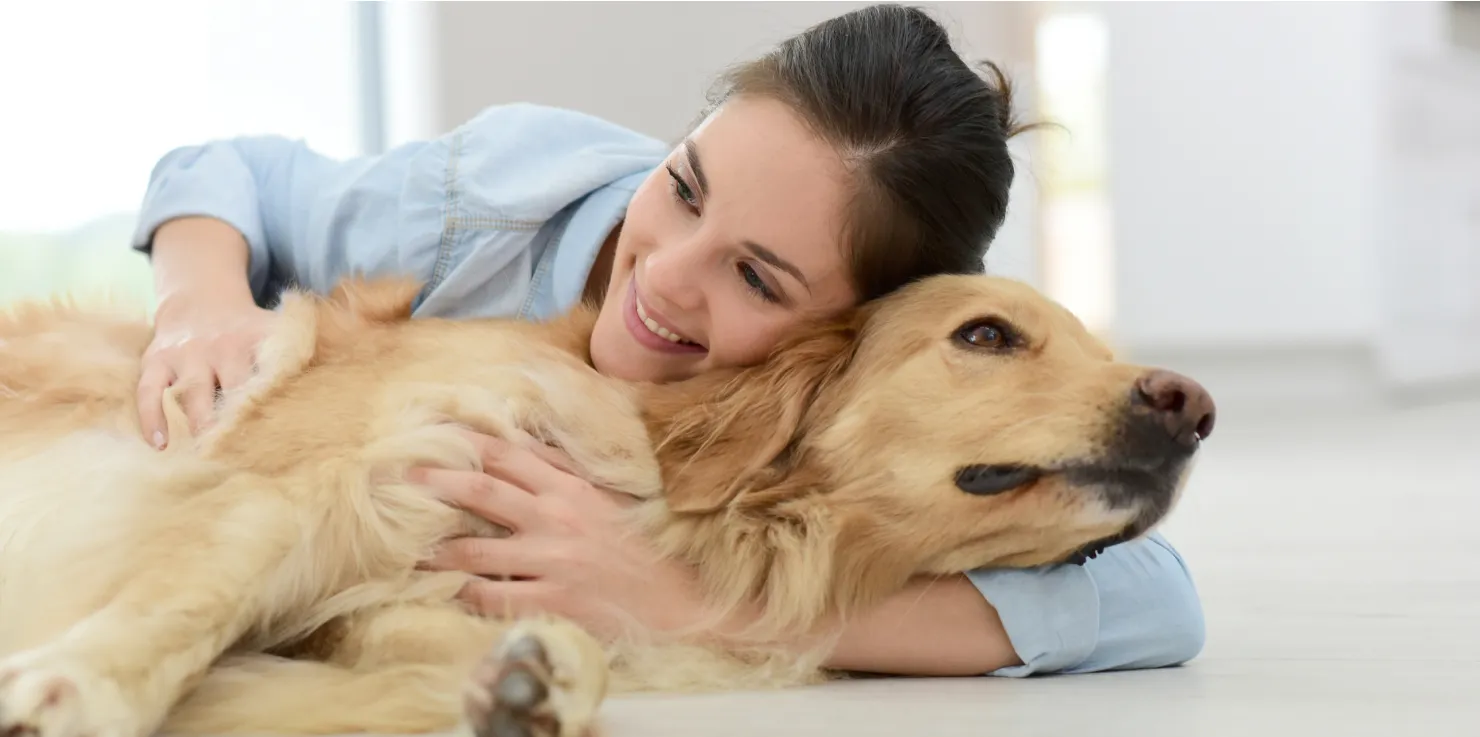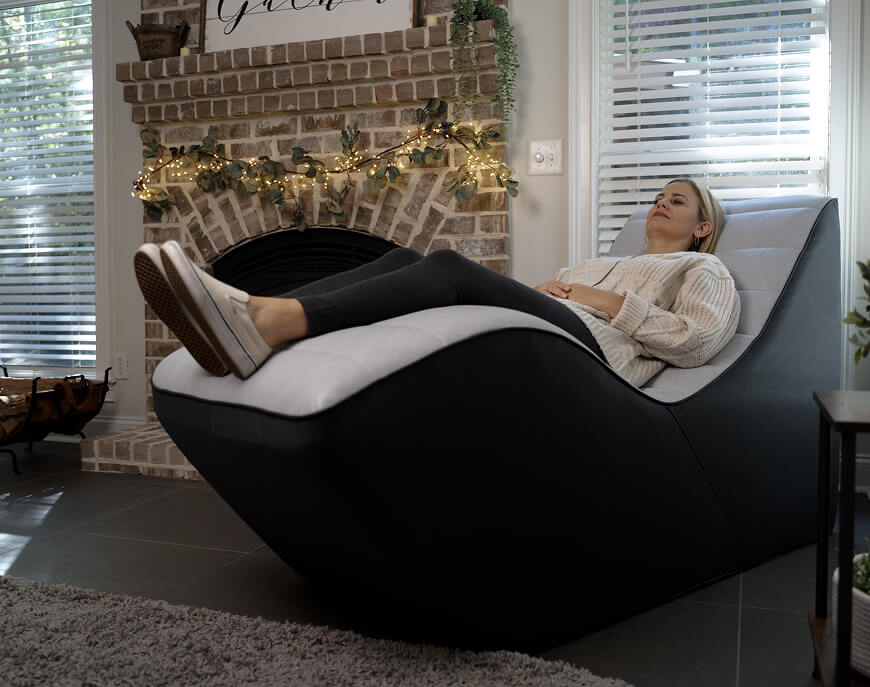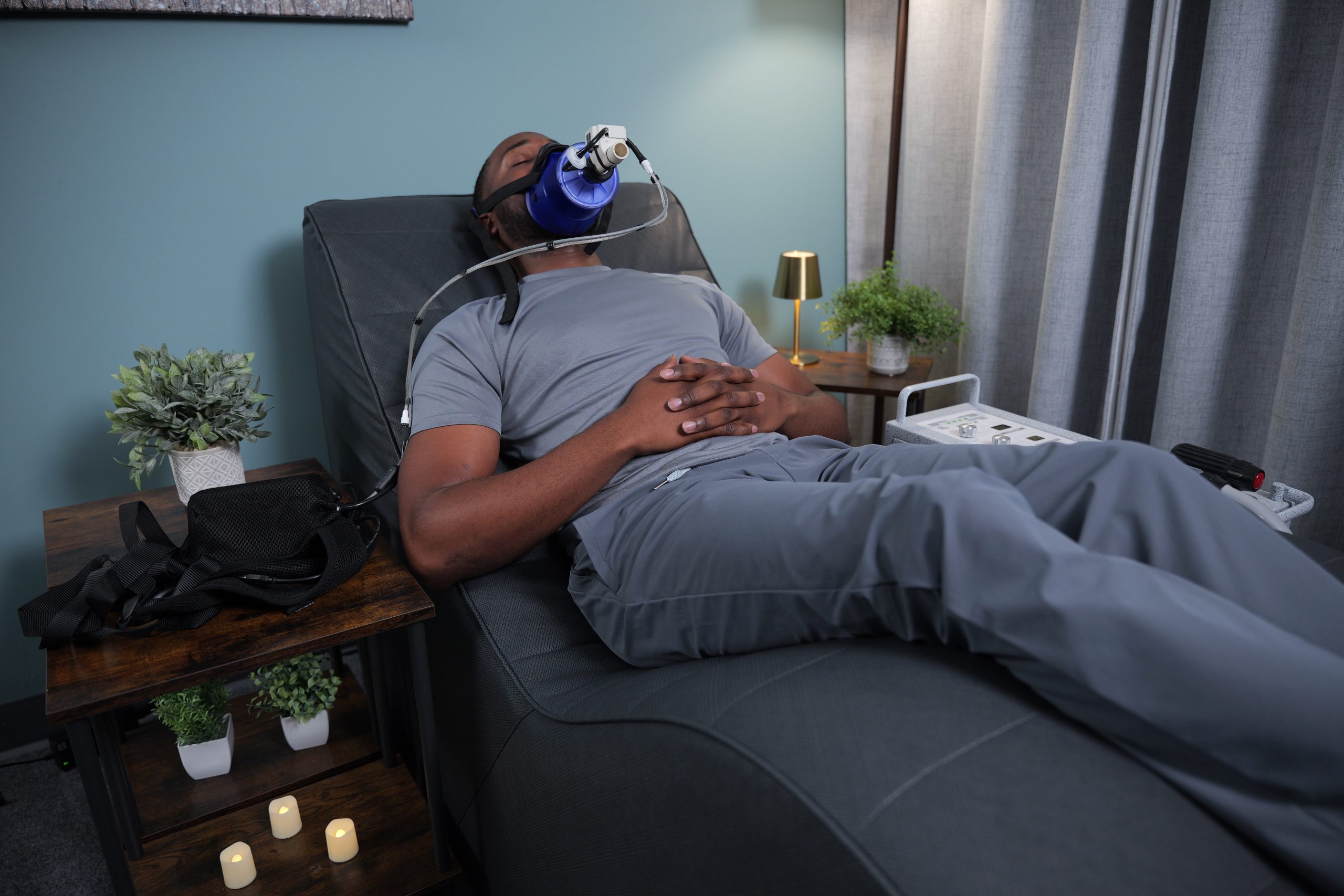We all want our furry companions to live long and happy lives.
As our pets reach their senior years, providing them with the right care becomes even more important. While a healthy diet and supplements are crucial, there’s more we can do to support their well-being.
This blog post dives into senior pet care beyond PEMF, exploring additional ways to keep them thriving in their golden years.
Understanding the Needs of Senior Pets
As our beloved pets age, their needs can change. Just like us, they might experience some aches and pains, or find it harder to see and hear as well as they used to. Here are some common health issues senior pets can face:
Common Health Issues in Senior Pets
Arthritis and Joint Pain: This can make it difficult for your pet to get around, and can cause them discomfort.
Cognitive Decline: Sometimes called “doggy dementia,” this can affect your pet’s memory and ability to learn new things.
Vision and Hearing Loss: Your pet might not see or hear quite as well as they used to.
Chronic Diseases: Senior pets are more prone to conditions like diabetes or kidney disease.
Behavioral Changes in Aging Pets
It’s not just physical health! Aging pets can also experience behavioral changes, such as:
Increased Anxiety or Irritability: They might seem more stressed or easily startled.
Changes in Sleep Patterns: Senior pets may sleep more during the day, or become restless at night.
Reduced Activity Levels: Those playful zoomies might become less frequent.
By understanding these common challenges, we can tailor our senior pet care to keep our companions happy and comfortable.
Regular Veterinary Care
Regular check-ups with your veterinarian are essential for senior pet care. These visits allow your vet to monitor your pet’s overall health and catch any potential problems early.
Importance of Regular Check-Ups
Just like with humans, catching health problems early in senior pets can make a big difference. Regular checkups allow your vet to identify potential issues before they become serious, leading to better treatment options and a better quality of life for your pet. The frequency of these visits might increase as your pet ages, so discuss a schedule with your veterinarian.
Vaccinations and Preventive Care
Besides check-ups, there are other important aspects of preventative senior pet care:
- Updated Vaccination Schedules: Your vet will recommend an appropriate vaccination schedule for your senior pet, taking into account their age, health, and lifestyle.
- Parasite Prevention: Senior pets are still susceptible to fleas, ticks, and heartworms. Talk to your vet about the best parasite prevention plan for your furry friend.
Exercise and Physical Therapy
Staying active is important for senior pets, just like it is for us! Of course, the type of exercise needs to be appropriate for their age and abilities.
Appropriate Exercise for Senior Pets
Here are some ideas for keeping your senior companion moving:
Low-Impact Activities: High-impact activities like jumping or running can be hard on joints. Instead, focus on gentle, low-impact exercises like short walks, swimming (which is great for buoyancy and joint support!), or indoor playtime. Even short bursts of activity throughout the day can be beneficial.
Regular exercise offers a wealth of benefits for senior pets, including:
- Improved mobility and flexibility
- Maintaining muscle mass
- Boosting mental well-being and reducing boredom
Physical Therapy Options
In some cases, your veterinarian might recommend physical therapy to help your senior pet manage pain or improve their mobility. Here are some physical therapy options that can be helpful:
Hydrotherapy: Water exercise is a fantastic way for senior pets to get a low-impact workout without putting stress on their joints.
Massage Therapy: Massage can help to relieve muscle tension and pain, and improve circulation.
Acupuncture: This traditional Chinese medicine technique can be helpful in managing pain and improving mobility.
Environmental Enrichment and Mental Stimulation
Just like physical health, keeping your senior pet’s mind active is crucial. Here’s how to create a stimulating and comfortable environment for your pet:
Creating a Comfortable Living Environment
As pets age, their bodies might become less agile. Make adjustments to their living space to ensure easy access. This could include adding ramps to navigate furniture, providing comfy orthopedic beds for better joint support, and placing food and water bowls at an easy-to-reach height. Maintaining a consistent temperature is also important, as senior pets might struggle to regulate their body temperature as effectively.
Cognitive Enrichment Activities
Mental stimulation is vital for senior pets’ well-being. Here are some ideas to keep their minds sharp:
- Interactive Toys and Puzzles: Food dispensing puzzles or treat-hiding toys can encourage problem-solving skills and keep them occupied.
- Training Sessions and New Skills: Short, positive training sessions can be a fun way to bond and teach your pet new tricks. Even if it’s just a simple command refresh, the mental exercise is beneficial.
By providing a comfortable and stimulating environment, you can help your senior pet stay happy and engaged!
Emotional Wellbeing and Companionship
Our senior pets thrive on love and connection. Here’s how to nurture their emotional well-being.
Human Interaction and Bonding
Regular affection, playtime, and simply spending quality time with your pet are essential. Cuddling, gentle massaging, or playing fetch – these everyday moments strengthen your bond and let your pet know they’re loved.
Socialization with Other Pets
Sometimes, companionship from another furry friend can be wonderful for senior pet care. The benefits can include reduced stress, increased activity levels, and a sense of security.
However, it’s important to manage introductions carefully. Consider your senior pet’s personality and temperament. A calm and playful younger pet might be a good fit, while a rambunctious puppy could be overwhelming.
Consult your veterinarian or a certified animal behaviorist for guidance on introducing pets and ensuring safe and positive interactions.
Conclusion
Providing our senior companions with the love and care they deserve allows them to truly flourish in their golden years.
Remember, these tips are just a starting point! Every animal is unique, so be sure to consult your veterinarian to create a personalized senior pet care plan.
PEMF can also be a valuable tool in your senior pet’s care. PEMF has been shown to help improve mobility, enhance recovery, and increase energy levels – all of which can contribute to a happier and more active life for your pet.
Ready to learn more about how Pulse PEMF may benefit your senior companion? Contact us today!

